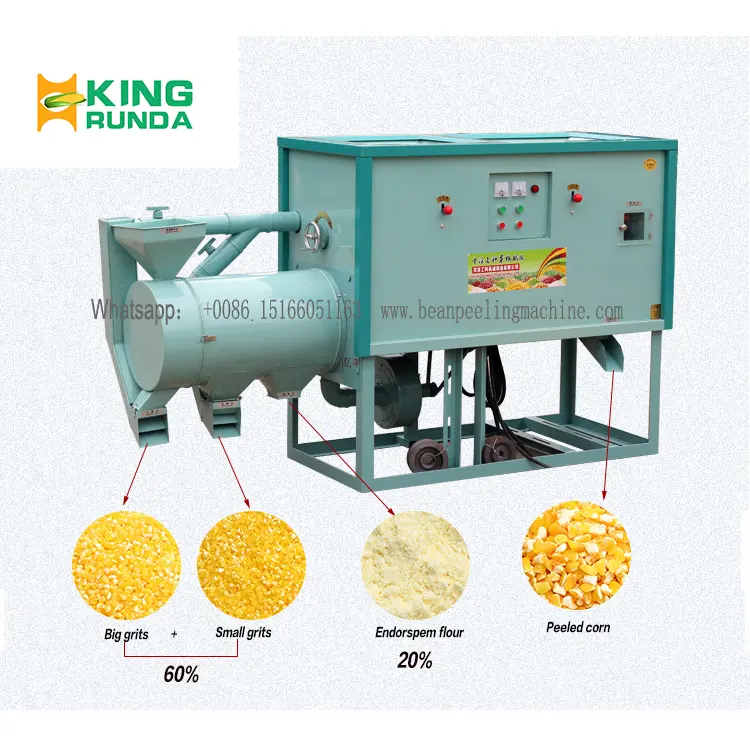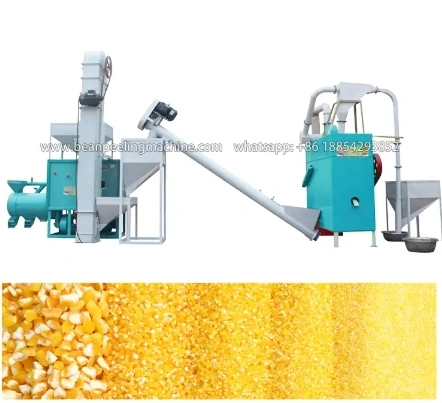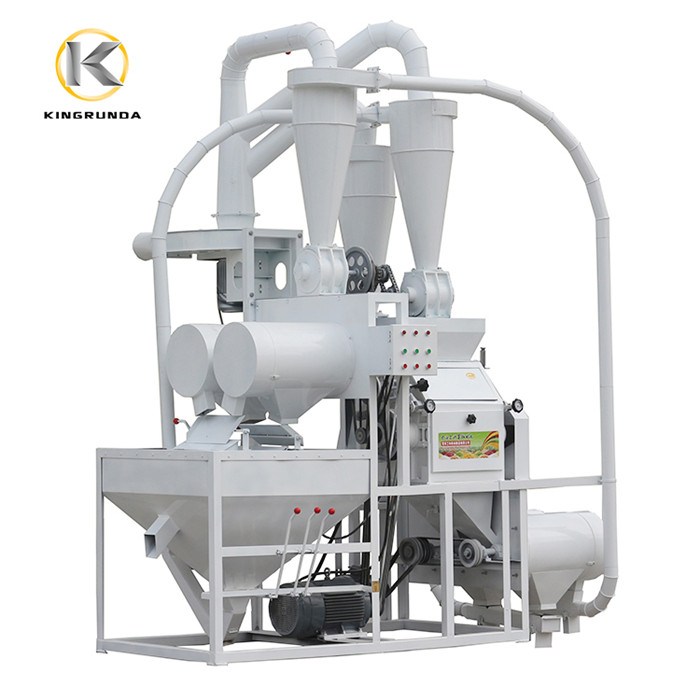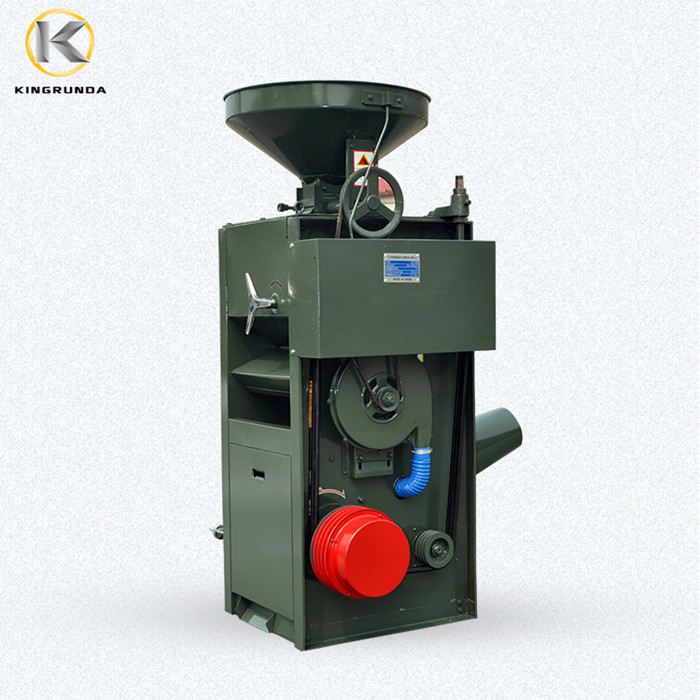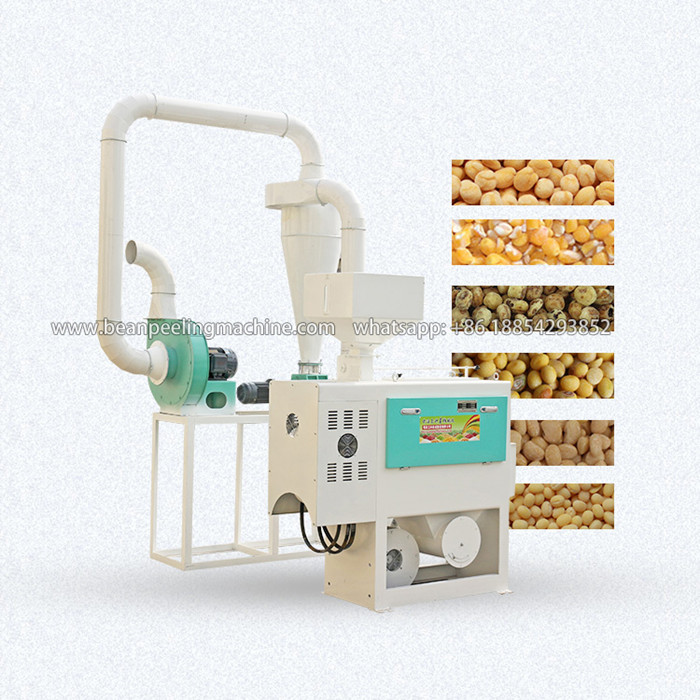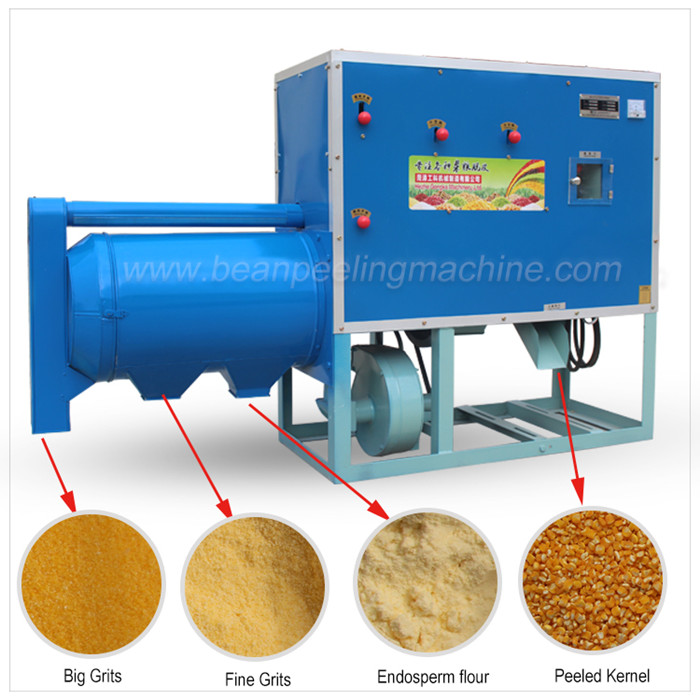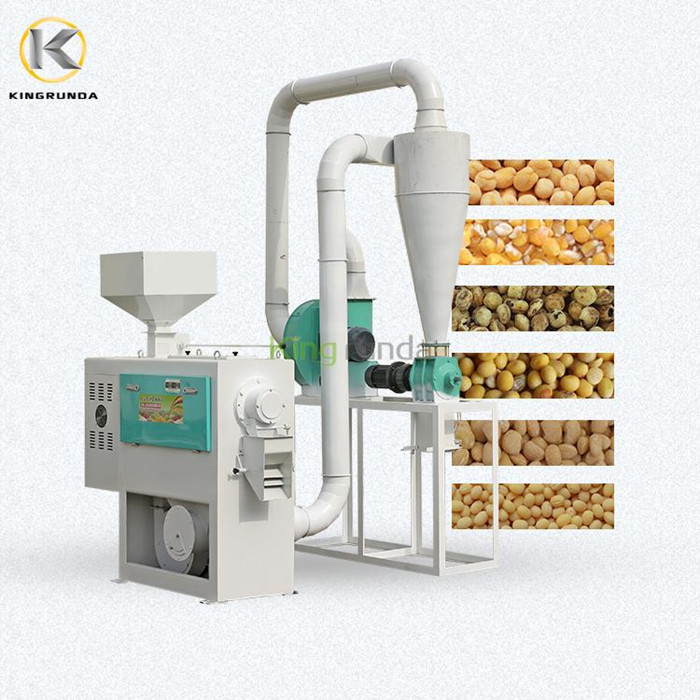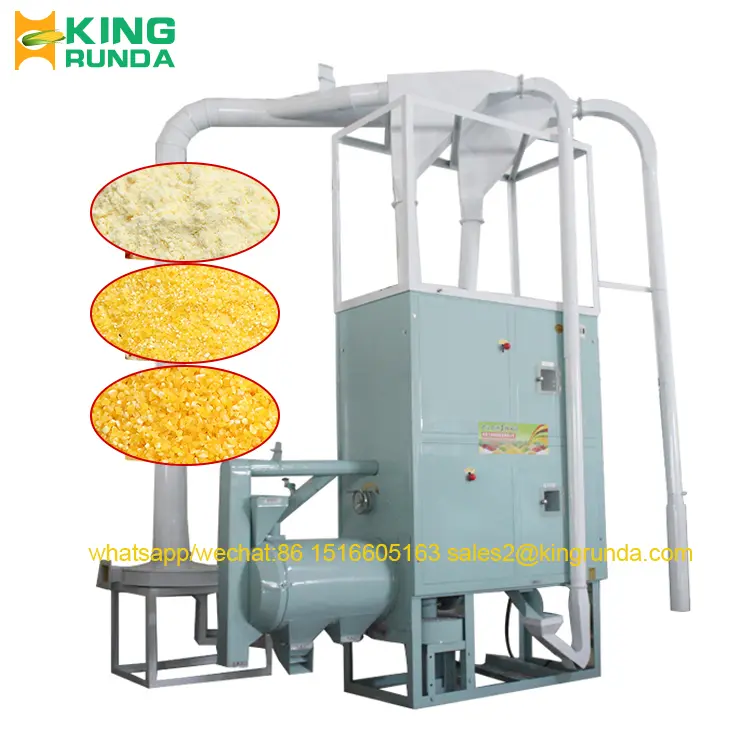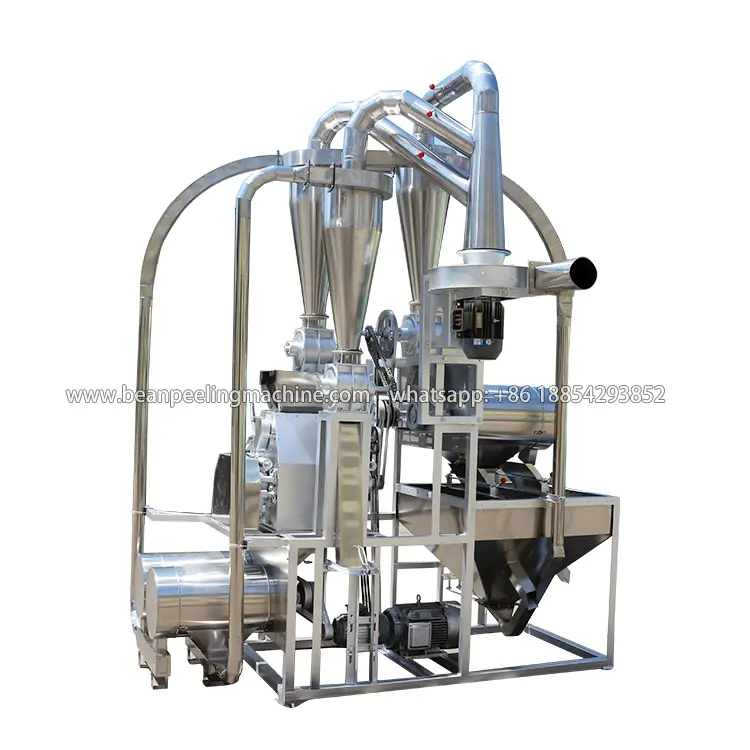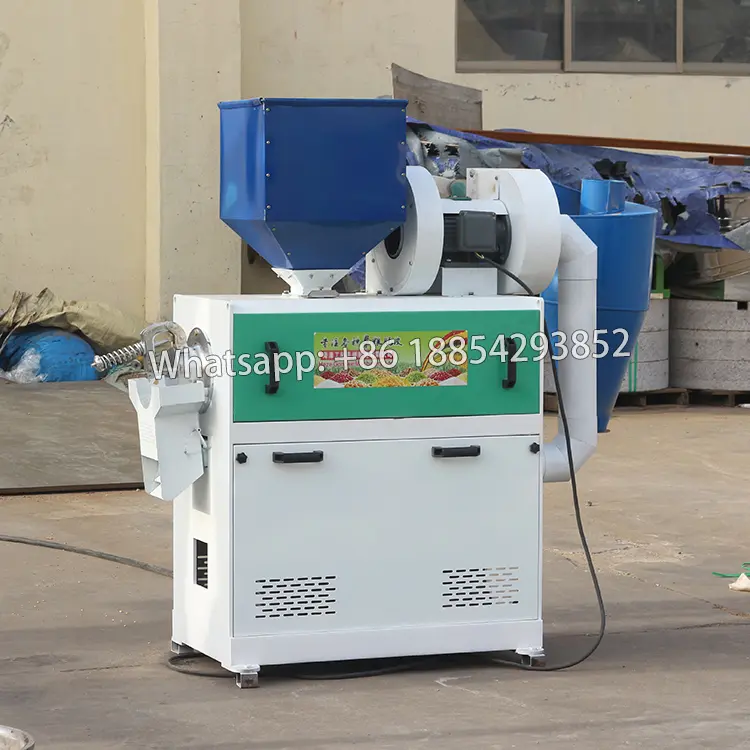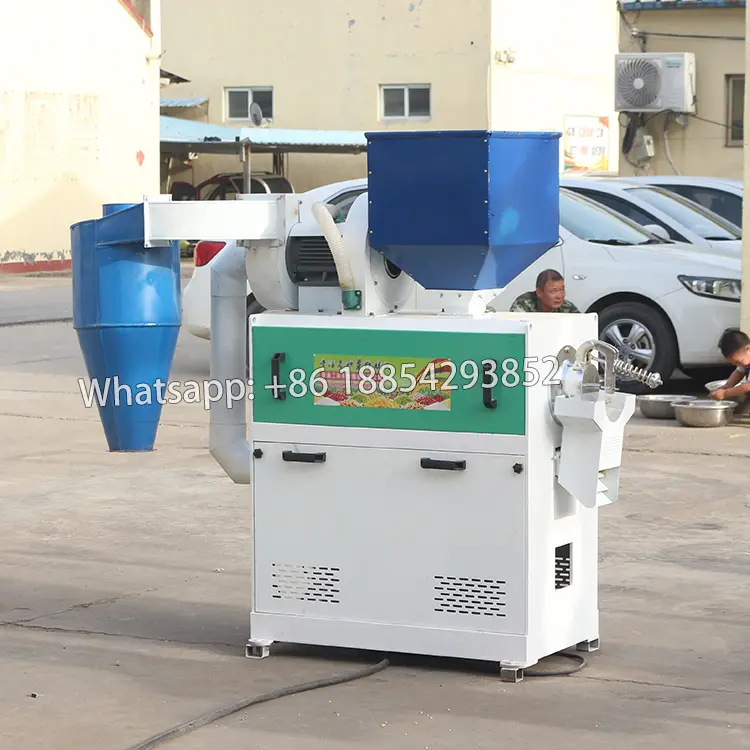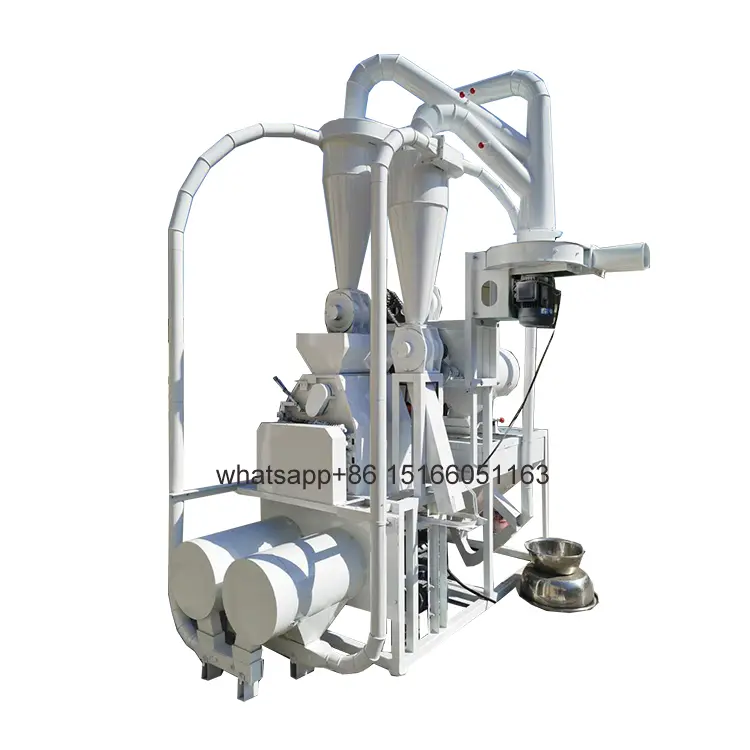In the heartlands of maize cultivation, the Posho Mill Machine maize milling machine stands tall as a symbol of empowerment and sustainability. Revolutionizing the traditional approach to maize milling, this machine plays a pivotal role in transforming maize into flour, a staple food for many communities.
1. Posho mill machine maize milling machine introduction
Posho mill machine maize milling machine breaks the convention. The peeling system and grinding system can work independently, which saves electricity. also increases the service life of the machine.
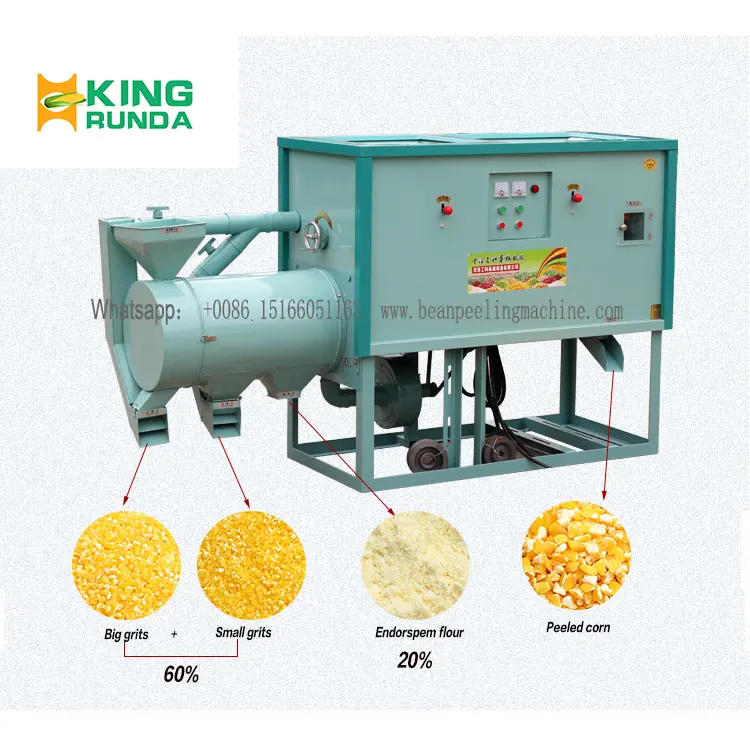
Posho milling machine maize milling machine is beautiful appearance、sturdy and durable,、easy to opearate and reliable performance.

Posho mill machine can work with electric elevator to make it fully automatic,which can reduce labor cost.
2.Posh mill machine maize grinding machine technical parameters
| Model | 6FT-PD1C |
| Name | Top Grade Combined Corn Grits Milling Machine |
| Brand | Kingrunda |
| Condition | New |
| Final product qty | 4 |
| Grits Qty | 2 |
| Production capacity | 400~500kg/hour |
| Motor power | 15kw |
| Peeling performance | Approx. 98% |
| Automation | Semi automatic |
| Usage | Wheat, rice, corn, soyabean, yellow peas, etc |
| Usage scope | Small sized food processing plant |
| Overall size | 1980x680x1310mm |
| Quality assurance | 1 year |
| Certification | CE, ISO9001, SGS |
| Net weight | 450kg |
If buyer have higher capacity or special request , we can make it.
3.Posho mill machine structure

1. Thick iron sheet strong body, posho mill machine not shake during running.
2. Powder coat finish for machine outside, anti-scratch, durable, nice looking.
3. Grinding handwheel turn to control different sizes of grits.
4. Wind insert plate to control wind capacity which helps take out bran/skin from grits.
4.Maize milling machine actual photo

5.Final products

After crushing and polshing, the finished grits are golden in color and uniform in grain,The finished grits no skin、 no germ 、no black hilum、no flour,which can be sold directly in large supermarket .
6.Technical Advantages
1. Production capacity is up to 600kg/hour. Machine is most powerful, and biggest capacity.
2. The peeling system and grinding system can work independently
3. Peel dry way.
4. Peeling quality excellent. After peeling, corn has no skin, no corn germ, root and hilum.
5. Grits has no black hilum.
6. Fine grits has no skin, no flour.
7. Acrylic window design for easy watching over peeling result.
8. Peeling performance rate is up to 98%.
9. Special grits milling mechanism to grind corn evenly into grits.

7. Key Features of the Posho Mill Machine maize milling machine
1. Maize Processing Efficiency
The Posho Mill Machine maize milling machine is engineered for efficient maize processing. Its design allows for the transformation of maize kernels into fine flour, catering to the culinary needs of communities.
2. Adaptability to Local Maize Varieties
This versatile machine is adaptable to various local maize varieties, ensuring that it can effectively process the maize cultivated in specific regions. This adaptability makes it a valuable asset for local farmers.
3. User-Friendly Operation
The design of the Posho Mill Machine prioritizes user-friendliness. Its controls and operational mechanisms are intuitive, making it accessible to operators with varying levels of technical expertise.
4. Cost-Effective Milling Solution
Serving as a cost-effective milling solution, the Posho Mill Machine contributes to reducing the economic burden on local communities. Its affordability makes it an essential tool for small-scale maize milling enterprises.
5. Community-Based Maize Processing
Posho mills are often community-based, serving the milling needs of local residents. This communal approach fosters a sense of shared resources and supports local economies.
6. Durable Construction
Built with durability in mind, the Posho Mill Machine features a robust construction that withstands the rigors of regular use. Its longevity ensures a sustainable investment for communities.
7. Grain Cleaning Mechanism
Some Posho Mill Machines maize milling machine come equipped with a grain cleaning mechanism, ensuring that the maize processed is free from impurities. This contributes to the production of cleaner and safer maize flour.
8. Integral to Food Security
The Posho Mill Machine maize milling machine plays an integral role in enhancing food security within communities. By facilitating the processing of maize into flour locally, it reduces dependence on external sources and ensures a stable maize supply.
9. Employment Generation
The establishment and operation of Posho mills generate employment opportunities within local communities. This economic activity contributes to the overall well-being and development of the community.
10. Sustainable Maize Value Chain
By integrating the Posho Mill Machine maize milling machine into the maize value chain, communities can achieve sustainability in maize processing. This, in turn, has positive implications for agricultural practices and food production.
The Posho Mill Machine maize milling machine represents more than just a milling tool; it symbolizes community resilience, economic empowerment, and sustainable agricultural practices. As it continues to be a beacon of progress in maize milling, its impact resonates in the self-sufficiency and prosperity of the communities it serves. In the maize fields and bustling communities, the Posho Mill Machine maize milling machine stands as a testament to the transformative power of localized, community-driven solutions.
FAQ
What is a Posho Mill Machine?
A Posho Mill Machine is a type of milling machine used to process maize into flour. It is commonly used in communities, especially in rural areas, to mill maize locally.
How does a Posho Mill Machine work?
The Posho Mill Machine works by grinding maize kernels into fine flour. Maize is fed into the machine, and the milling process transforms it into the desired consistency for various culinary uses.
Is a Posho Mill Machine only used for maize milling?
While Posho Mill Machines are primarily designed for maize milling, some models may have the versatility to process other grains. It's advisable to check with the manufacturer for specific capabilities.
What is the significance of Posho Mills in local communities?
Posho Mills are significant in local communities as they provide a decentralized milling solution. They empower communities to process maize locally, reducing dependence on external sources and fostering economic self-sufficiency.
Are Posho Mills user-friendly?
Yes, Posho Mills are designed to be user-friendly. They typically have intuitive controls, making them accessible to operators with varying levels of technical expertise.
Do Posho Mills contribute to employment generation?
Yes, the establishment and operation of Posho Mills often contribute to employment generation within local communities. This economic activity enhances the overall well-being and development of the community.
Are Posho Mills cost-effective?
Posho Mills are considered cost-effective milling solutions, especially for small-scale milling enterprises. Their affordability makes them accessible to local communities, supporting sustainable and economical maize processing.
Do Posho Mills have grain cleaning mechanisms?
Some Posho Mill Machines come equipped with grain cleaning mechanisms to ensure that the processed maize is free from impurities. This contributes to the production of cleaner and safer maize flour.
Can Posho Mills process different varieties of maize?
Yes, Posho Mills are adaptable to various local maize varieties. Their design allows them to effectively process the maize cultivated in specific regions, making them suitable for diverse agricultural environments.
What role do Posho Mills play in food security?
Posho Mills play an integral role in enhancing food security within communities. By facilitating the local processing of maize into flour, they reduce dependence on external sources and contribute to a stable maize supply.
Are Posho Mills sustainable in the long term?
Posho Mills can contribute to long-term sustainability in maize processing. Their integration into the maize value chain supports sustainable agricultural practices and local economic development.
